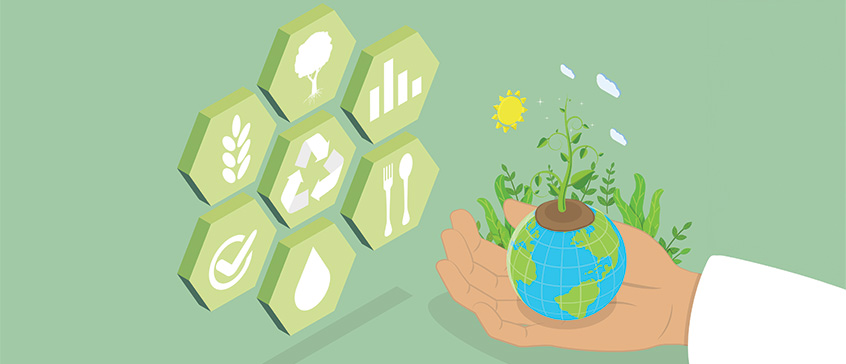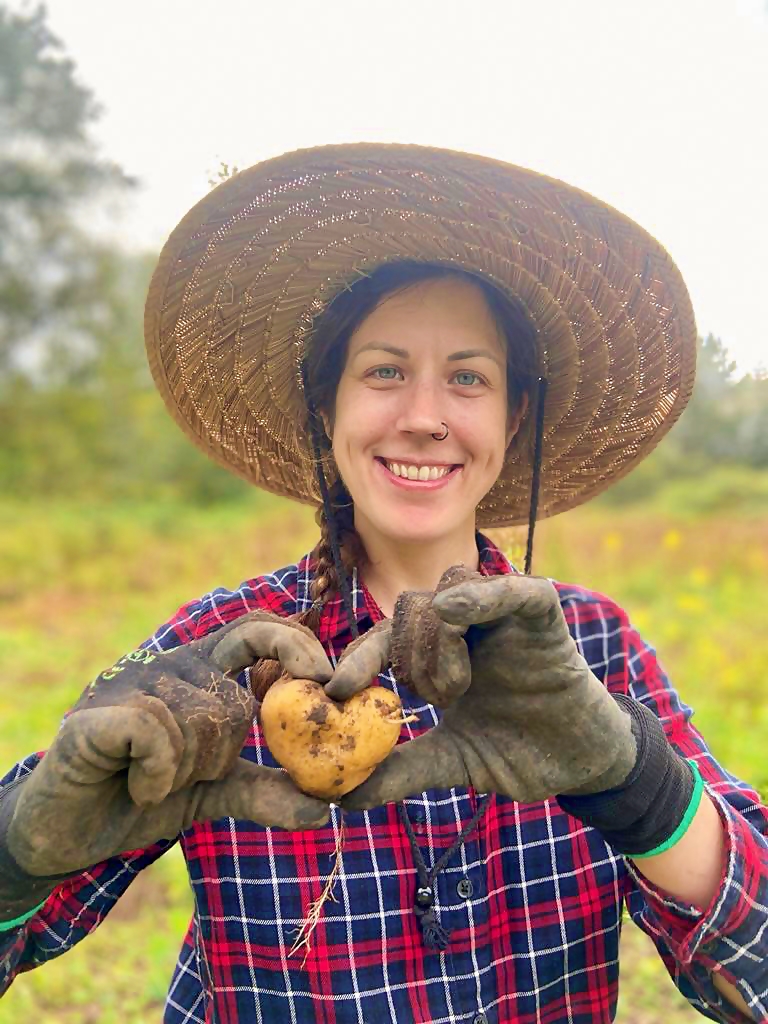Home / Science and the Environment / Building pathways to sustainable living environments through permaculture
Building pathways to sustainable living environments through permaculture

By instructor Bethany Couture
In a world where environmental concerns are at the forefront of our minds, permaculture has emerged as a beacon of hope and a path to more sustainable living. If you're unfamiliar with permaculture, I hope to introduce you to some of its simple, yet harmonious solutions to our ever-growing global issues.
To begin, permaculture—a contraction of "permanent agriculture" or more recently adapted to "permanent culture"—presents a holistic approach to designing ecosystems and communities that mimic the patterns and relationships found in nature. Originally developed by Bill Mollison and David Holmgren in the 1970s, permaculture has since gained traction worldwide, offering a set of principles that guide individuals toward regenerative and sustainable living practices.
At its heart, the permaculture principles are what shape its approach to design and living. These are just a few of the key principles which permaculture is based on:
1. Observe and interact: through careful observation of natural systems, permaculture can help us better understand the rhythms and patterns of nature. Use, value and utilize renewable resources, such as sunlight, wind, water and organic matter.
2. Integrate rather than segregate: let yourself be inspired by the interconnectedness of ecosystems and integrate different elements to create mutually beneficial relationships.
3. Use small and slow solutions: recognizing the power of incremental changes instead of seeking instant fixes.
Permaculture reminds us that solutions don't have to be grand or immediate. It shows us how small and gradual changes often have a more lasting impact that allows us to adapt and learn through the process. The 12 core permaculture principles can be applied to various contexts, including gardening, farming, architecture, community planning and even how to better nurture ourselves and our families.
"Embracing permaculture means taking a step toward a brighter and more sustainable future."
Imagine being able to create a backyard garden that thrives with minimal inputs, a farm that nurtures the soil and produces abundant yields for all, a sustainable community that integrates green spaces and renewable energy, and families that are more emotionally resilient to our fast-changing world.
Permaculture offers a mindset shift that encourages us to view our relationship with the environment as a partnership rather than a dominance. By aligning our daily practices with the wisdom of nature, we can create sustainable, regenerative systems that provide for our needs while respecting the intricate balance of the natural world. Embracing permaculture means taking a step toward a brighter and more sustainable future.
So, roll up your sleeves, open your mind, and get ready to embark on a journey that promises to transform the way you view and interact with the world around you.
Want to know how you can dig in and get started? Register now for the half day workshop, Introduction to Permaculture, on Saturday May 4th, 2024!

About the instructor
Bethany Couture is a holistic horticulturalist from Victoria, BC. Through her studies, she realized there must be more sustainable ways to cultivate sustenance from the land. This led her down the path of permaculture which wove together her passions for horticulture, herbalism, mycology, self-sufficiency and environmental sustainability.
She received her Permaculture Design Certificate from renowned permaculturalists Starhawk and Penny Livingston, coordinates a volunteer collective to nurture the permaculture garden at the Horticulture Centre of the Pacific and volunteers at the Eco-Sense permaculture nursery. She's now pursuing a diploma in permaculture while running her business, Garden Alchemist, which designs landscapes abundant with edible, medicinal and native plants.
- Posted March 26, 2024
RELATED TOPICS: Horticulture and NatureSustainability
Visit Registration
2nd Floor | Continuing Studies Building University of Victoria Campus 3800 Finnerty Road | Victoria BC | CanadaTel 250-472-4747 | Email uvcsreg@uvic.ca
2024 © Continuing Studies at UVic
Legal Notices |
Sitemap

